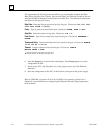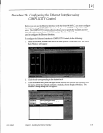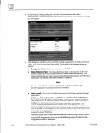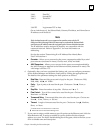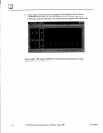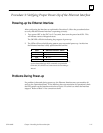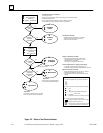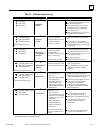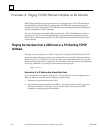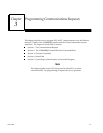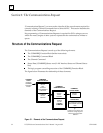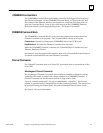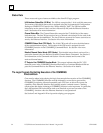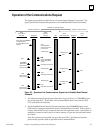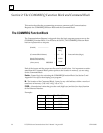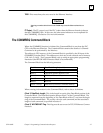
2
2-20
TCP/IP Ethernet Communications User’s Manual - August 1997 GFK-1084B
Procedure 4: Pinging TCP/IP Ethernet Interfaces on the Network
PING (Packet InterNet Grouper) is the name of a program used on TCP/IP networks to
test reachability of destinations by sending them an ICMP echo request message and
waiting for a reply. Most nodes on TCP/IP networks, including the Series 90-30 Ethernet
Interface, implement a PING command.
The user should ping each installed Ethernet Interface. When the Ethernet Interface re-
sponds to the ping, it verifies that the interface is operational and configured properly.
Specifically it verifies that acceptable TCP/IP configuration information has been stored
to the Interface.
Pinging the Interface from a UNIX host or a PC Running TCP/IP
Software
The ping can be executed from a UNIX host or PC running TCP/IP (since most TCP/IP
communications software provides a ping command) or from another Ethernet Interface.
When using a PC or UNIX host, the user can refer to the documentation for the ping com-
mand, but in general all that is required is the IP address of the remote host as a parameter
to the ping command. For example, at the command prompt type:
ping 3.0.0.1
Determining If an IP Address Has Already Been Used
It is very important not to duplicate IP addresses. To determine if you have configured your
Ethernet Interface with the same IP address as another node:
1. Disconnect your Interface from the LAN.
2. Ping the disconnected Interface’s IP address. If you get an answer to the ping, then
the chosen IP address is already in use by another node. You must correct this
situation by assigning unique IP addresses.



